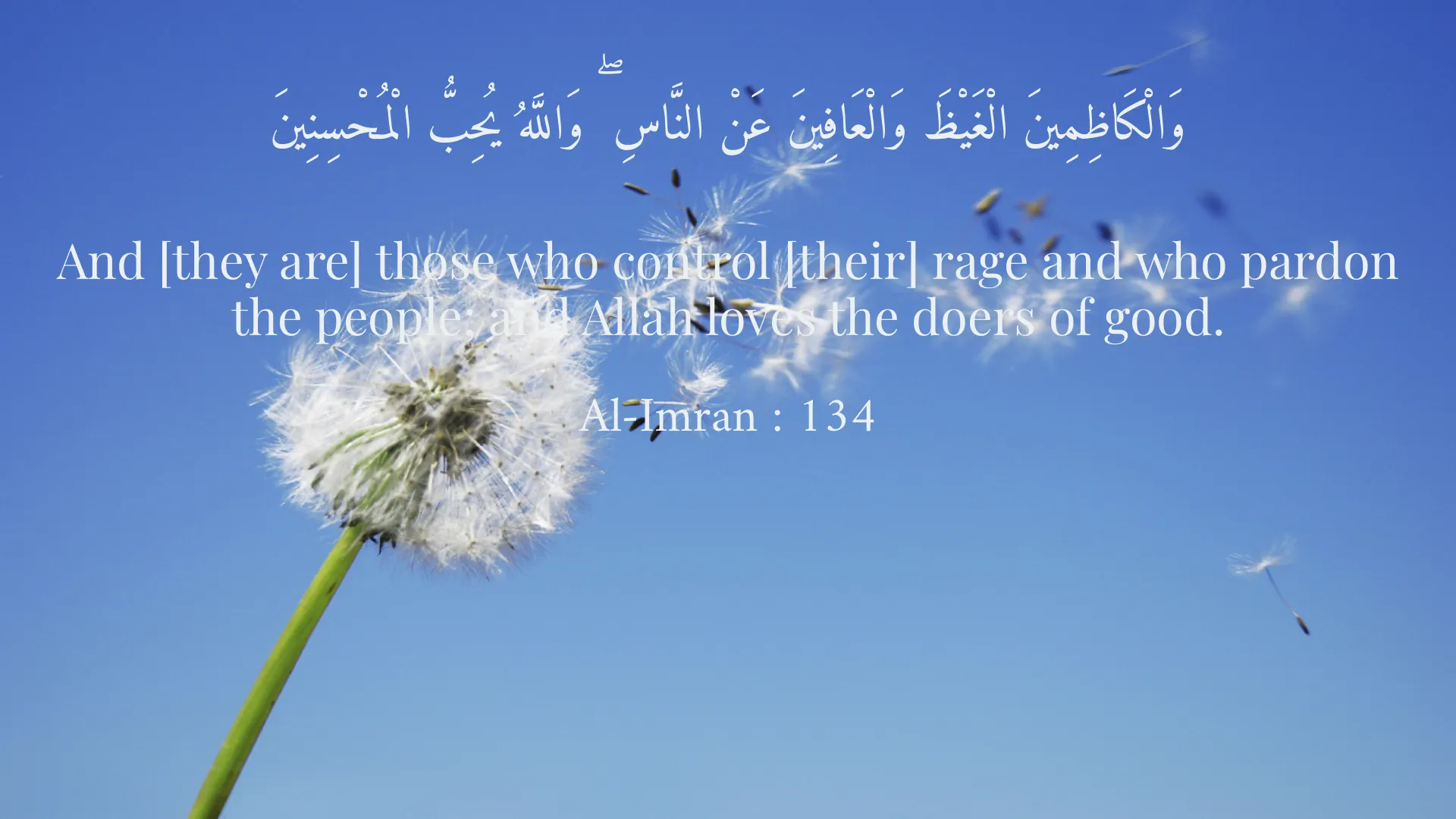Quranic Answer

The human heart is a complex vessel of emotions, capable of harboring a multitude of feelings ranging from love and joy to hatred and resentment. Among these, feelings of hatred can easily dominate hearts and lead to inner unrest, creating a profound imbalance not only in individual lives but also in society as a whole. This article aims to explore the teachings of the Holy Quran concerning the purification of the heart and how one can rid oneself of toxic emotions such as hatred. Hatred often stems from negative experiences, disappointment, jealousy, or grudges that we hold towards others. It acts like a poison, slowly consuming our happiness and preventing us from experiencing life's joys. The repercussions of harboring these feelings can include stress, anxiety, and a general sense of unrest. The negative energy associated with hatred can further exacerbate conflicts in our relationships, leading to a cycle of hostility and vengeance. Therefore, it is crucial to address these feelings proactively to maintain our emotional and mental well-being. In this regard, the Holy Quran provides invaluable guidance on purifying our hearts and overcoming feelings of hatred. One of the prominent teachings is found in Surah Al-Imran, verse 134: 'And [they are] those who control [their] rage and who pardon the people; and Allah loves the doers of good.' This verse serves as a reminder that controlling one's anger and forgiving others are acts that not only align with moral integrity but also reflect a deeper spiritual connection. The ability to manage our emotions, particularly anger, is fundamental in combating hatred. When we take a step back and reflect on the bigger picture, we recognize that forgiveness can lead to healing—for both ourselves and those we have been angry at. Forgiveness, however, is not an easy process. It requires genuine introspection and an understanding of the nature of our hurt. When we forgive, we take back control of our emotions and refuse to allow negativity to dictate our feelings and actions. The Quran encourages believers to practice forgiveness as part of their spiritual and social development. By forgiving others, we are also reminded of our imperfections as human beings; we all make mistakes and are deserving of mercy. Similarly, in Surah Al-Mu'minun, verse 96, it states: 'Repel, by that [injunction] which is best, [their] evil.' This powerful teaching encapsulates the essence of overcoming negativity with positivity. It emphasizes not only the rejection of evil actions but also the proactive engagement in promoting what is morally and ethically superior. This principle of repelling evil with goodness is a cornerstone of nurturing a peaceful community. When we face hostility or negativity, responding with kindness and compassion can break the cycle of hatred and to promote harmonious coexistence. The Quran's perspective is not limited to personal betterment; it stretches further into societal improvements. Essentially, if we replace hatred and anger with love and kindness, we not only free ourselves from burdensome negativity but also steer society toward affection and mutual respect. The collective impact of individual transformations can lead to a more compassionate and understanding society, thereby diminishing the prevalence of conflict and hatred among people. Moreover, the Quran encourages contemplation on the detrimental effects of hatred and animosity. Hatred often blinds us to the blessings that surround us and distances us from the beauty of love and friendship. Jealousy, in particular, can be toxic, creating barriers that prevent genuine connections with others. Reflecting upon our feelings and their origins can lead to greater self-awareness and a clearer understanding of our motivations and aspirations. It pushes us to address the root causes of our bitterness and take responsibility for our emotions. In the context of emotional healing, the Quran also emphasizes the significance of prayer and the connection with Allah. Through prayer, we can seek solace and guidance, asking God to cleanse our hearts of hateful feelings and restore tranquility to our souls. Acts of worship not only strengthen our relationship with Allah but also provide us with the spiritual nourishment needed to combat negative emotions. Turning to prayer can be transformative; it allows us to open up our hearts and seek divine assistance in overcoming our struggles. In conclusion, the antidote to hatred lies within the teachings of the Holy Quran, which advocates for emotional control, forgiveness, repulsion of evil with goodness, and a strong connection with God. Each principle serves to foster a mindset that promotes calmness, compassion, and ultimately leads to the purification of the heart. By embracing these teachings, we equip ourselves to navigate life's challenges more effectively, transform our relationships, and contribute positively to the broader society. Thus, through the practice of controlling anger, forgiving others, and spreading love and kindness, we not only nurture our own souls but also pave the way for a more harmonious world.
Related Verses
وَالْكَاظِمِينَ الْغَيْظَ وَالْعَافِينَ عَنْ النَّاسِ ۖ وَاللَّهُ يُحِبُّ الْمُحْسِنِينَ
And [they are] those who control [their] rage and who pardon the people; and Allah loves the doers of good.
Al-Imran : 134
وَادْفَعْ بِالَّتِي هِيَ أَحْسَنُ السَّيِّئَةَ ۖ نَحْنُ أَعْلَمُ بِمَا يَصِفُونَ
Repel, by that [injunction] which is best, [their] evil. We are most knowing of what they describe.
Al-Mu'minun : 96
Short Story
One day, Adel decided to free himself from hatred. He began praying and asked God to grant him the strength to forget the wrongs he had suffered. After some time, Adel noticed that he no longer dwelled on past wounds and felt a greater sense of joy. Through forgiving others, he experienced a feeling of lightness and peace.